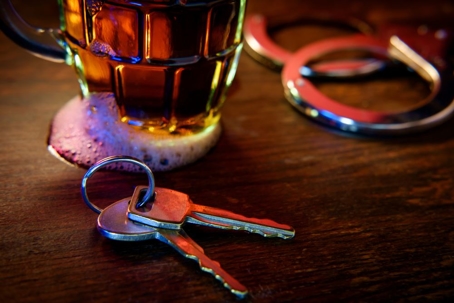PRIVATE PROPERTY DUIs: CAN I BE ARRESTED FOR DUI IN VIRGINIA ON PRIVATE PROPERTY?
The short answer is yes. You can be arrested for DUI and potentially convicted of a DUI on private property.[1]
However, a DUI arrest on private property can cause complications for a DUI prosecution because the implied consent law, which typically obligates someone arrested for DUI to submit to a breath test, does not apply.
That is, if police cannot determine that the person drove on a highway directly prior to the occurrence of any drinking and driving, the defendant is not required to submit to a blood alcohol test.
VIRGINIA’S IMPLIED CONSENT LAW ONLY APPLIES TO HIGHWAYS
As indicated above, the implied consent law only applies to operation of vehicles on highways. The law states in pertinent part “[a]ny person . . . who operates a motor vehicle upon a highway, as defined in § 46.2-100, in the Commonwealth shall be deemed thereby, as a condition of such operation, to have consented to have sample of his blood, breath, or both blood and breath taken for a chemical test to determine the alcohol, drug, or both alcohol and drug content of his blood, if he is arrested for a violation of §18.2-266 [DUI] . . . within three hours of the alleged offense.” Va. Code §18.2-268.2 (A).
WHAT IS A HIGHWAY?
As established by the caselaw, for a roadway to be a highway within the meaning of the Virginia Code “it requires a showing that the public has unrestricted access to the way.” Kim v. Commonwealth, 797 S.E.2d 766 (2017)(citing Caplan v. Bogard, 264 Va. 219, 227, 563 S.E.2d 719 (2002)). Parking lots designated for use of private businesses and its invitees are in general not considered statutory highways. See e.g. Roberts v. Commonwealth, 28 Va. App. 401 (1998)(finding convenience store parking lot not a highway); Flinchum v. Commonwealth, 24 Va. App. 734 (1997)(parking lot of sporting goods store and auto repair shop not a highway); Prillaman v. Commonwealth, 199 Va. 401 (Va., 1957)(service station lot not a highway); Kim v. Commonwealth, 797 S.E.2d 766 (2017)(collecting cases and finding private road through apartment complex not a highway within the meaning of § 46.2-100 where signs explicitly stated “No Soliciting,” “No Loitering,” “No Trespassing,” and Violators Will Be Prosecuted.”).
DEFENDING PRIVATE PROPERTY DUIS
In defending DUI cases that occur on private property we routinely visit the scene with an investigator to photograph any no trespassing signs, other signs, or even interview witnesses (e.g. a person in charge of the property) in order to establish that the public does not have unrestricted access to the property. For example, in defending a DUI case that arose from a fender bender at a strip mall, we obtained photos of signs showing the parking lot and parking spaces were reserved for guests of the businesses. This pretrial work prevented the introduction into evidence of a breath test certificate that would have demonstrated the defendant was above the legal limit.
In another DUI arrest that occurred at a large hotel, we demonstrated through hotel records that the defendant had parked and checked into the hotel prior to going back out to move her car closer to her room—the parking lot was a private lot meant for hotel guests only. Despite the defendant’s admission she had driven on a public highway to get to the hotel, the break in time between this driving and being inside the hotel made the admissibility of the breath test certificate dubious at best.
In other DUI cases where the defendants were arrested at large apartment complexes and/or within gated communities, we demonstrated that the public did not have unrestricted access to the complexes, complicating the introduction of breath test certificates that could have been strong evidence against our clients. While the defendants in these cases may have still been convicted on field sobriety test evidence and other observations made by law enforcement, it provided us with leverage to obtain non-DUI outcomes for the defendants.
If you are charged with a DUI that occurred on private property, feel free to call us at (703) 468-8557 or email us at kclaw@kingcampbell.com for a confidential consultation.
[1] Examples of private property where our clients have been charged with DUI include shopping centers, parking lots, hotels, and apartment complexes. Sometimes such charges arise out of minor fender benders resulting in the police being summoned or, ironically, a person deciding to sleep in their car to be safe rather than drive home.
